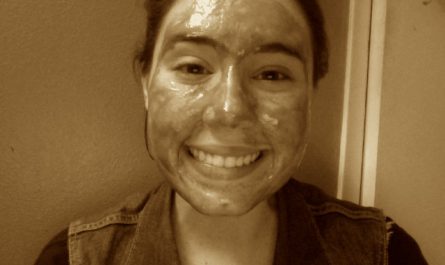 Shifting papers. Rustling backpacks. The sliding of chairs. The smell of pencil shavings. Sweat is running down your forehead. Your hand is shaking as you reach out for that one object. One small object. It only weighs about .8 ounces. Looks harmless from far away, but one glance and your stomach drops… “Number one,” you begin to read. Around an hour later, you get up. Your rear is numb, your hand hurts, and you’re not sure whether or not to give back the object you were given. In the end, you give in and give it up. Your head hurts too much to even consider looking at it again. You skulk back to your desk and slump into your seat. Maybe you got lucky. Or you got what you were asking for. Six hours of video games and watching The America’s Got Talent Marathon doesn’t seem as good an idea as it did yesterday. Your head is so disappointed with you, it falls to your desk in despair. The bell rings. You don’t wish to move. You think to yourself, “This is the third time this week!” Now stop. What are we looking at? What we have here is a common case of Exam Apathy Syndrome Yorba (EASY). In case you are wondering, Yorba means “road” in Spanish… at least that’s what I’ve been told by people who live in Yorba Linda, CA. Anyways, you mostly need to remember the first three words. Yorba just made it an acronym.
Shifting papers. Rustling backpacks. The sliding of chairs. The smell of pencil shavings. Sweat is running down your forehead. Your hand is shaking as you reach out for that one object. One small object. It only weighs about .8 ounces. Looks harmless from far away, but one glance and your stomach drops… “Number one,” you begin to read. Around an hour later, you get up. Your rear is numb, your hand hurts, and you’re not sure whether or not to give back the object you were given. In the end, you give in and give it up. Your head hurts too much to even consider looking at it again. You skulk back to your desk and slump into your seat. Maybe you got lucky. Or you got what you were asking for. Six hours of video games and watching The America’s Got Talent Marathon doesn’t seem as good an idea as it did yesterday. Your head is so disappointed with you, it falls to your desk in despair. The bell rings. You don’t wish to move. You think to yourself, “This is the third time this week!” Now stop. What are we looking at? What we have here is a common case of Exam Apathy Syndrome Yorba (EASY). In case you are wondering, Yorba means “road” in Spanish… at least that’s what I’ve been told by people who live in Yorba Linda, CA. Anyways, you mostly need to remember the first three words. Yorba just made it an acronym.
So what exactly is EASY? EASY is a typical high school student disease. It’s sometimes dangerous, but not deadly. By senior year, many students have experienced it at least once. EASY can be recognized by the following symptoms; A test (or exam) is assigned. This catastrophic announcement is made a few weeks, or a few days, before the due date. Let’s say a particular student is told they have a history exam in two weeks. He decides on Monday that he has PLENTY of time. No need to do anything just yet. Ah procrastination. Procrastination is the first sign of EASY. About Thursday, he remembers the exam and lazily scans some of the material. This is the second and worst sign: Apathy. When a student subconsciously decides something important is not worth the time or effort, no matter the consequences. By the next Monday, he only has a week left. He considers studying the first few pages, but remembers Monday Night Football is on. Tuesday, his girlfriend wants to go to a movie. Wednesday, he’s too tired to study. Thursday, he realizes the test is tomorrow. There are usually three choices a student can make at this point. This decision will tell how badly they have EASY. The first is to stay up really late and study the night before. The second choice is to go to bed anyway, and study the period before that class. The final and quite possibly, WORST choice is to go into the exam cold turkey. No studying whatsoever.
STOP!!!!! It doesn’t have to be like this!!!!! Now, don’t lie. We’ve all done this. I confess. Being a senior, I can remember many a time I’ve blown off tests. Did I regret it? Absolutely! There are quite a few consequences that come with EASY. The main one is obvious. You won’t do as well as you could have. For example, I once had a Spanish quiz. I knew about it for a week, but didn’t study once. I never even looked at any of the words that would be on the quiz outside of class! Once I got the quiz, I realized that I didn’t know hardly any of it. And most of it would have been really easy if I had taken the time to look them over! Another problem with blowing off tests is that you may not make a good grade in the class if you keep it up. Eventually, those bad grades add up, and worst case scenario: you fail everything and don’t graduate!
So what’s the right way to study for an exam? I’m glad you asked! Let’s go with the previous scenario. You’ve been told you have a history test in two weeks. It’s over three chapters and about 35 pages of information plus some dates. Here’s your game plan:
DAY 1) Skim the third chapter. Going backward in order will help you retain more, instead of going from beginning to end every time. Spend around ten minutes and focus on the bold terms.
DAY 2) Do the same thing for the second chapter.
DAY 3) Do the same thing for the first chapter.
DAY 4) Look over any specific instructions your teacher gave you. For example, if they tell you there will be a matching section of the early explorers to their accomplishments, make sure you write that down so you can study that section more.
DAY 5) Make sure you know most (preferably all) of the bold terms/vocabulary from the first chapter. Writing out definitions or making flashcards is time consuming, but helpful.
DAY 6) Finish going over the first chapter’s bold stuff.
DAY 7) Make sure you know most of the bold terms from the second chapter.
DAY 8) Finish going over the second chapter’s bold stuff.
DAY 9) Make sure you know most of the bold terms from the third chapter.
DAY 10) Finish going over the third chapter’s bold stuff.
DAY 11) Take a break from studying. You need one!
DAY 12) Ask you teacher, tutor, or a really smart kid in your class about anything in the material you’re confused about. You don’t want to study stuff you don’t understand!
DAY 13) Review ALL material. Go back through and look over all of your notes and reading. Make sure you understand it and are comfortable with the information. You still have one more day to ask questions if need be.
DAY 14) The day/night before the test. Don’t freak out. AND DON’T STAY UP STUDYING! Spend about 10 minutes looking at a few trouble areas or things you had a problem remembering earlier in the week, but THAT’S ALL. Go to bed at a decent hour, if not early. The last thing you want is to be falling asleep during the exam!
DAY 15) TEST DAY! Make sure you eat something before you take the test. Your brain will be focused and more apt to recalling answers than if your poor stomach is growling. Also, be prepared to take the test. Have all of your test takin’ stuff ready to go the night before. Finally, be confident. No test is worth stressing over if you’ve studied and you try your best.
I hope this AEASYS (Avoid Exam Apathy Syndrome Yorba Schedule) helps you in your journey through high school! Something to keep in mind also is to not study anymore than 20 to 30 minutes a day. Studying for hours on end one or two days is NOT good at all. Another good way to feel prepared is to listen and take notes in class when a teacher emphasizes certain things in the reading or homework. This usually is a good indication you will need to know that information. Good luck studying! “Eat lots of chocolate and listen to Mozart” as my father would say!



